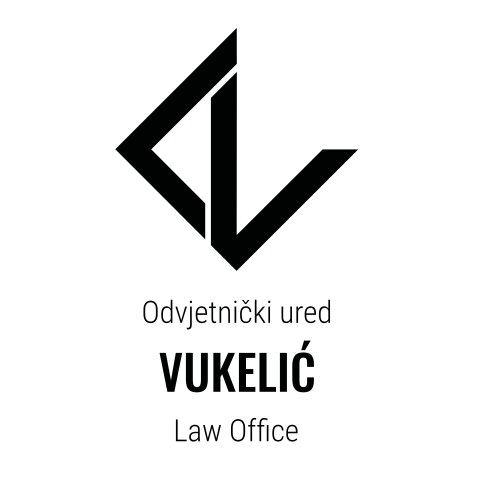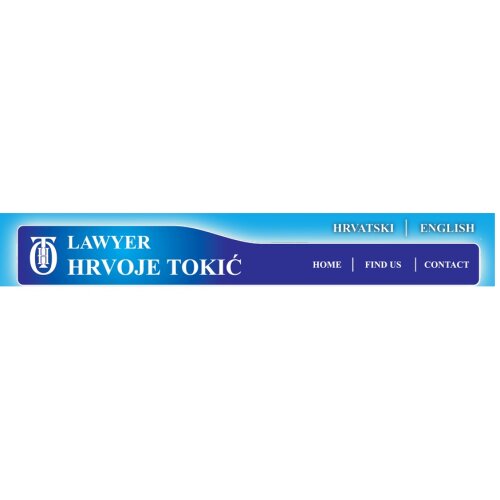Best New Business Formation Lawyers in Croatia
Share your needs with us, get contacted by law firms.
Free. Takes 2 min.
Or refine your search by selecting a city:
List of the best lawyers in Croatia
About New Business Formation Law in Croatia
The process of new business formation in Croatia is governed by a set of regulations designed to facilitate entrepreneurship while ensuring compliance with Croatian laws. Business formation can include setting up various types of legal entities such as a limited liability company (d.o.o.), joint-stock company (d.d.), or a simple limited liability company (j.d.o.o.). Each type of entity has its own legal requirements, tax obligations, and governance structures. Foreign investors can also find opportunities to establish businesses, given the conducive policies for investment and business development in Croatia.
Why You May Need a Lawyer
When forming a new business in Croatia, it can be invaluable to have legal help for the following reasons:
- Choosing the Right Business Structure: Lawyers can help determine the appropriate business entity that best fits the needs and goals of the entrepreneur.
- Navigating Legal Requirements: From registration with the Commercial Court to ensuring compliance with tax regulations, legal expert advice is crucial.
- Drafting Legal Documents: A lawyer can draft and review important documents such as articles of association, partnership agreements, and employment contracts.
- Understanding Intellectual Property Laws: For businesses dealing with intellectual property, legal counsel can provide guidance on trademarks, patents, and copyrights.
Local Laws Overview
The legal framework for new business formation in Croatia involves several key laws and regulations including:
- Company Law: Governs the registration, management, and dissolution of businesses.
- Foreign Investment Law: Encourages foreign investment with certain incentives and protections.
- Labor Law: Regulates employment contracts, worker rights, and employer responsibilities.
- Taxation Laws: Determines corporate tax obligations and potential tax incentives.
- Commercial Code: Outlines principles governing trade and commerce.
Frequently Asked Questions
1. What type of business entity should I choose?
The choice of business entity depends on several factors including the number of founders, liability concerns, taxation, and growth plans. Consulting a lawyer can provide tailored advice.
2. How do I register a business in Croatia?
Businesses are registered through the Commercial Court. The process involves submitting necessary documents and fees and can be aided by legal counsel.
3. What are the costs associated with starting a business?
Costs vary based on business type, but they include registration fees, administrative fees, and notary costs. There might also be ongoing obligations such as accounting services and taxes.
4. Are there any government incentives for new businesses?
Yes, there are several incentives available, particularly for innovation, export-related activities, and investments in specific regions.
5. Do foreign investors face any restrictions?
Generally, foreign investors enjoy the same rights, with certain industries requiring government approval. Legal consultation can clarify sector-specific regulations.
6. How long does it take to establish a business?
The duration can vary but typically takes a few weeks. Engaging a lawyer can streamline the process, ensuring timely and accurate submissions.
7. What are my tax obligations as a new business owner?
Businesses must comply with corporate tax, value-added tax (VAT), and, if applicable, other industry-specific taxes. Professional advice is recommended for efficient tax planning.
8. Can I operate my business from home?
This depends on the nature of the business and local zoning laws. Legal advice can provide clarity on allowable business activities from home.
9. How do I protect my business name or brand?
Trademark registration is advisable to protect your business name or brand from unauthorized use by others. Legal assistance ensures proper protection is secured.
10. What legal documentation do I need to maintain?
Essential documentation includes business licenses, tax records, financial statements, contracts, and employment records. Regular reviews with legal oversight can ensure compliance.
Additional Resources
For further assistance, consider contacting the following resources:
- Croatian Chamber of Economy: Provides information and support for business formation.
- Ministry of Economy and Sustainable Development: Offers guidance on government incentives and policies for new businesses.
- State Intellectual Property Office: For advice on protecting intellectual property rights.
- Local Commercial Courts: For the business registration process.
Next Steps
If you need legal assistance to navigate the complexities of setting up a new business in Croatia:
- Identify Your Needs: Determine whether you need advice on business registration, local compliance, or other legal matters.
- Consult a Lawyer: Seek out a Croatian lawyer who specializes in business law to provide reliable advice and assistance.
- Gather Necessary Documents: Compile all relevant documents including identification, proposed business name, and draft articles of association.
- Arrange a Consultation: Book a meeting with your lawyer to discuss your business goals and challenges, and develop a comprehensive formation strategy.
Lawzana helps you find the best lawyers and law firms in Croatia through a curated and pre-screened list of qualified legal professionals. Our platform offers rankings and detailed profiles of attorneys and law firms, allowing you to compare based on practice areas, including New Business Formation, experience, and client feedback.
Each profile includes a description of the firm's areas of practice, client reviews, team members and partners, year of establishment, spoken languages, office locations, contact information, social media presence, and any published articles or resources. Most firms on our platform speak English and are experienced in both local and international legal matters.
Get a quote from top-rated law firms in Croatia — quickly, securely, and without unnecessary hassle.
Disclaimer:
The information provided on this page is for general informational purposes only and does not constitute legal advice. While we strive to ensure the accuracy and relevance of the content, legal information may change over time, and interpretations of the law can vary. You should always consult with a qualified legal professional for advice specific to your situation.
We disclaim all liability for actions taken or not taken based on the content of this page. If you believe any information is incorrect or outdated, please contact us, and we will review and update it where appropriate.
Browse new business formation law firms by city in Croatia
Refine your search by selecting a city.

















